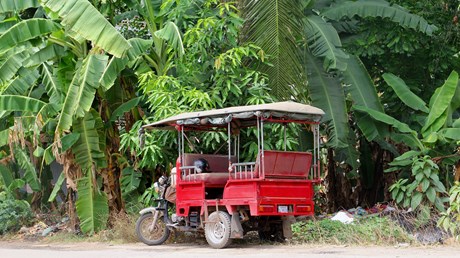It all depends on how you understand ‘safety.’

The obvious meaning of the title of Amy Peterson’s memoir, Dangerous Territory, is that she lived in a country where being a Christian was dangerous. Owning a Bible, watching the Jesus film, talking to friends and family about Jesus, going to religious conferences—all of it was dangerous. So dangerous in fact, that Peterson won’t mention the name of the country (which is somewhere in Southeast Asia).
But the under-the-surface meaning is that faith is dangerous, that following God is dangerous. Perhaps, even, that God himself is dangerous. Like Mr. Beaver said about Aslan in C. S. Lewis’s The Lion, the Witch, and the Wardrobe, “Safe?…Who said anything about safe? ‘Course he isn't safe. But he’s good. He’s the King, I tell you.”
This God—the good, unsafe God—is not the kind of God American Christians talk about often in their churches. But when Amy went abroad, she encountered him with the force of a head-on collision.
Experiencing a Dangerous God
It’s easy to hear Mr. Beaver’s words about Aslan, apply them to God, and quote them as true. Tingles run up and down my arms when I hear the sentence, and I’m inclined to worship this great, complex God. But being inspired and praising a dangerous God is a lot easier than experiencing him, or watching people we love experience him.
I have spent the last 14 years in three different countries in the Horn of Africa. One of the most common questions I get is: Are you safe? This is a hard question to answer. Do I feel safe? Yes. Am I actually, truly, really safe? Well…Yes. No. What do you mean by “safe?”
Do you mean, “Are there bombs going off and guns everywhere and high risk …
Source: Christianity Today Most Read